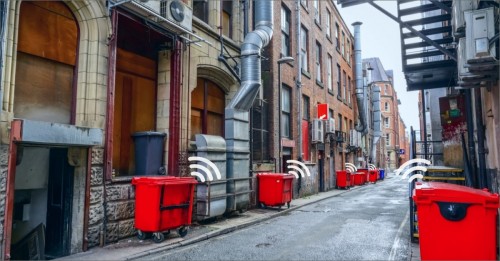Waste & material traceability solution for sustainable facilities

The waste produced in different areas in a city varies widely. So, the containers and waste bins throughout the city do not fill up at the same speed. This is even the same for the waste and trash containers in a different location in the same street. Though, cities allocate a huge amount of resources that can visit all the containers and waste bins at the same frequency, at the same time. Without an efficient method of waste collection, at its worst, the growing public is exposed to the breeding ground of bacteria, insects, and vermin due to accumulated trash, which also makes air and water-borne diseases spread. We can easily say that it is a public eyesore and nuisance especially for those metropolitan areas that are heavily dependent on tourism to generate revenues for municipal services.
Waste management efficiency is a primary concern and would yield proper approaches and improvements with regards to the collection. Another concern that the waste collection currently faces is the lack of waste data identification and documentation. This plays an important role in an efficient and smart waste management system.

Smart waste management focuses on solving solid waste management problems by intelligent monitoring systems, using smart sensors, IoT platforms, gateways, and web/mobile applications. Using sensors is the first smart solution to make the waste collection process more efficient. A sensor that is attached to a container can measure the fill level of the containers and provide updated information at any time and notify waste management services to empty them when they are full. Gateways play the role of bridging the gap between the sensor and the IoT platform, sending data from the sensor to the cloud. These devices help to optimize the best possible route that only contains filled containers and create smart schedules for drivers. The selection of waste bins and containers also minimizes the need for trash and waste collection crews. With GPS and GSM features, they can also alert the waste management companies or municipalities if there is an undesirable incident that happens such as sudden temperature rise or displacement of the container.
IoT solutions for solid waste management problems offer municipalities and companies access to data intelligence and real-time insights. In that regard, the fill patterns of specific containers can be identified by historical data and managing in the long term. Besides hardware, mobile applications are used to overcome the challenges in the regular waste management system such as keeping track of the drivers while they are operating on the field.
In addition to the previous, efficient resource planning, fulfillment tracking and SLA evaluation, prevention of losses due to fire and overflows, notification management, and real-time alerts, daily smart route optimization are the key benefits of tracking waste containers in the field.